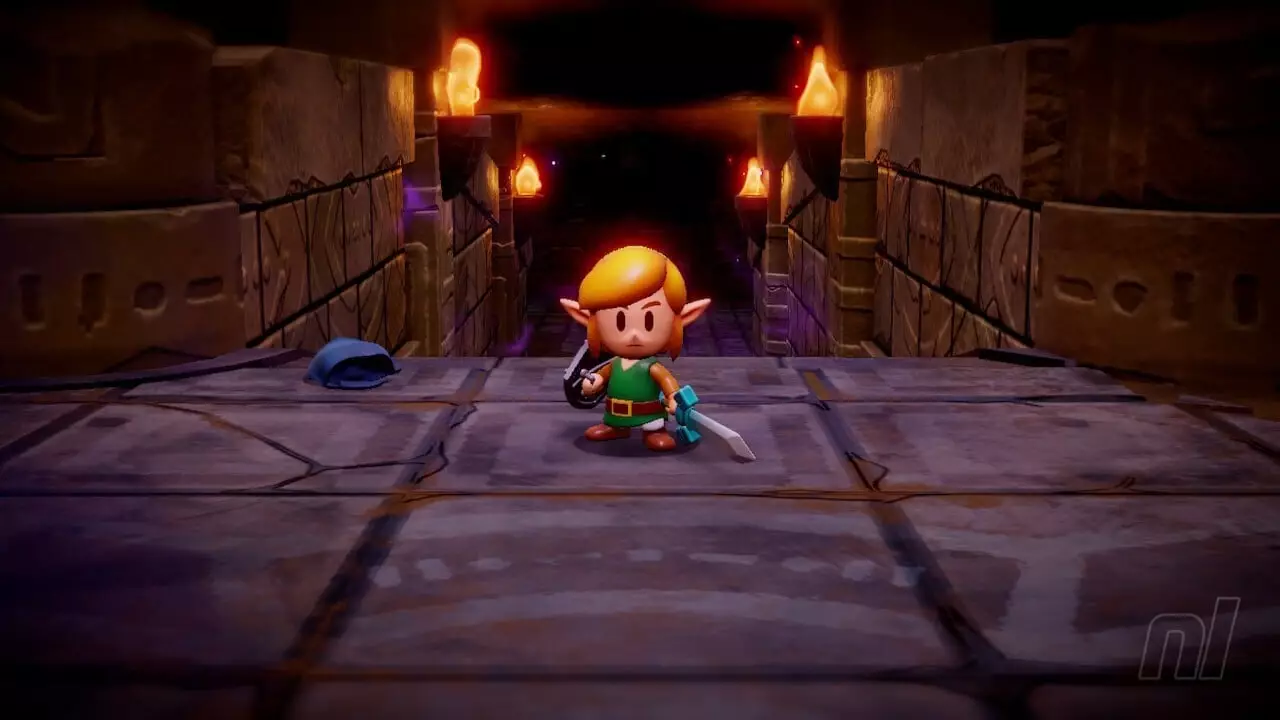The Legend of Zelda series has long dazzled audiences with its richly woven narratives and memorable gameplay mechanics. Yet, it appears that the latest entry, Echoes of Wisdom, has ventured into uncharted territory by placing Zelda herself as the main playable character. This monumental shift not only refreshes the narrative but brings forth a novel layer of storytelling, one that diverges from the traditional portrayal of Link as the inevitable hero. Link’s traditional role as the protagonist is preserved; however, the creators have given the character a unique twist that deepens the lore surrounding him: his inability to speak.
This latest development is particularly intriguing as it examines the underlying reasons for Link’s silence—a topic that has myriad implications for character development and player interaction. While players have cherished Link’s silent demeanor throughout his countless adventures, the decision to make him mute and provide a rationale for this choice invites deeper discussions about the nature of heroism, communication, and emotional bonds.
In Echoes of Wisdom, Link’s silence becomes a poignant narrative device rather than a mere gameplay quirk. Players control him briefly at the beginning of the game, but it’s after the first dungeon that a significant twist unfolds. By exploring the deeper lore through Lueberry’s diary entries, gamers uncover that Link’s voice was not simply lost due to circumstances but is linked to his traumatic experience of being trapped in rifts—an adventure that resonated with the experiences of other characters in the game.
This exploration of lost voices among the kidnapped children provides a compelling backdrop not just for Link’s character but for the overall emotional landscape of the game. Each lost voice symbolizes a piece of the self—trauma impacting identity, and so on. This connection pulls players into a world where silence holds weight; it becomes a vessel for empathy and shared experience rather than an absence of expression. However, it also raises questions about the restriction in player agency concerning dialogue choices, a staple featured in previous Zelda titles.
As players dive deeper into Echoes of Wisdom, reactions to Link’s muteness have been both curious and critical. On one hand, fans appreciate the backstory that explains his silence. It distinguished Link’s experience from other characters and introduces a nuanced understanding of silent protagonists. Players who consider Link’s absence of voice a mere fluke may miss the rich subtext and thematic resonance entwined in his character’s predicament. However, others express dissatisfaction, longing for the classic dialogue systems that enhanced past games, believing that these fostered greater engagement with both Link and other characters.
This polarized reception presents an intricate scenario that challenges players to reassess their perception of communication within the Zelda universe. Is Link still a relatable hero when rendered voiceless? Or does this choice create a disconnect that undermines the player’s attachment to him?
Ultimately, Link’s muteness in Echoes of Wisdom reflects a brave narrative choice by Nintendo and Grezzo. By emphasizing loss and communication barriers, they navigate the complexities of emotional storytelling, challenging both gameplay expectations and character relationships. In a franchise celebrated for its rich lore and depth, exploring the significance of silence becomes an avenue for deeper connection—one that invokes self-reflection on the struggles of voicelessness.
In a world where dialogue often shapes relationships, Link’s newfound silence invites players to experience Hyrule’s adventures through an unconventional lens. A mere gameplay mechanic transforms into an allegory of loss, connection, and the resilience of spirit, subtly teaching that silence can foster understanding, empathy, and ultimately, a sense of unity in adversity. As players navigate through Echoes of Wisdom, they’re left pondering the deeper implications of communication, both in-game and in life itself.


Leave a Reply